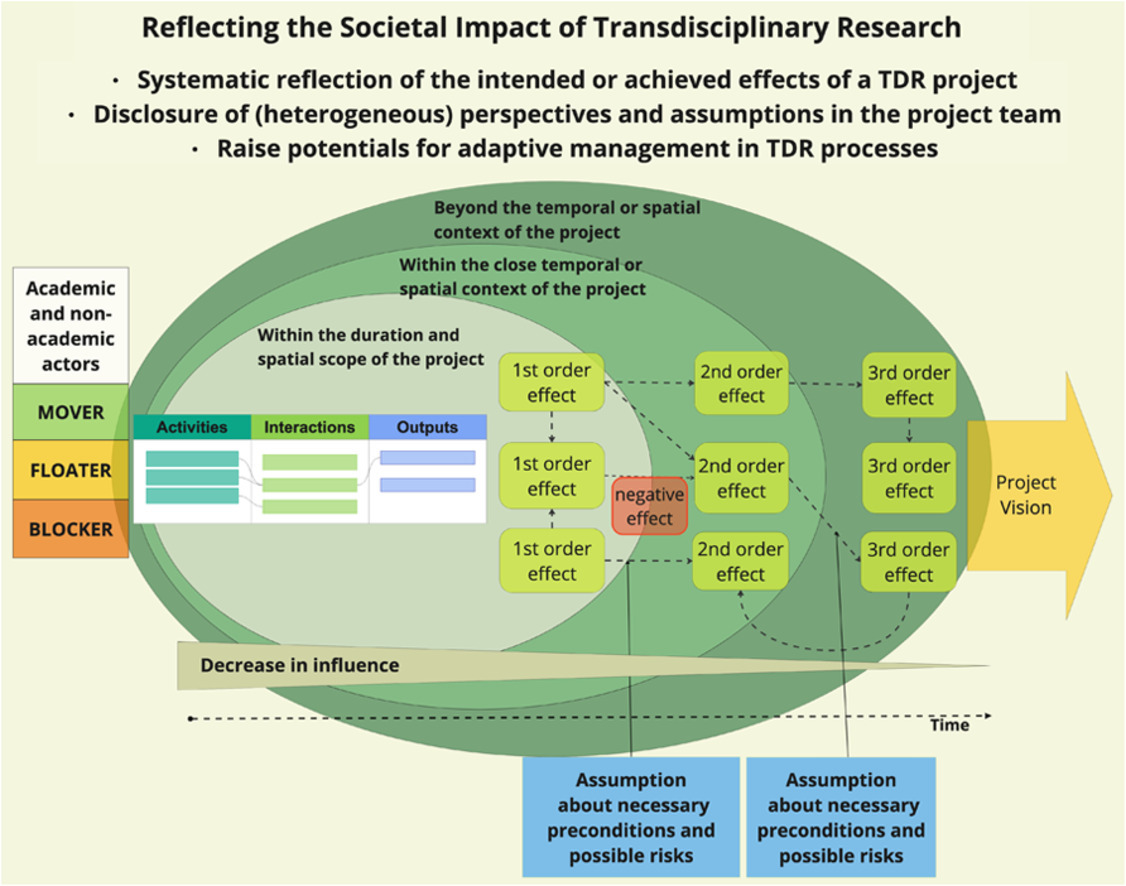
Source: Schäfer, Nagy & Kny, 2024
The main goal of transdisciplinary research (TDR) is to contribute to solving complex "real world" problems by integrating heterogeneous knowledge and achieving societal impact. However, establishing a consistent impact orientation in TDR processes is still a challenge, as the necessary tools are not yet sufficiently available.
To meet this challenge, Josefa Kny and Martina Schäfer developed and tested a half-day workshop format to strengthen impact orientation and impact reflection in TDR projects during the first funding phase of the tdAcademy. Testing the method in different project phases showed that the impact workshops support participants in systematically reflecting on and tracking social impact. Carried out in various project phases, The workshop results can serve as a basis for adapting the project design if the format is carried out several times throughout the project . Applying the methodological approach also promotes the qualities of the TDR process, such as co-creative collaboration and knowledge integration.
The reflexive approach to impact orientation
- involves scientific and non-scientific project partners of the TDR project team,
- draws on the Theory of Change approach as a conceptual framework and motivates participants to reflect on plausible impact pathways and make implicit assumptions about connections between different forms of societal impact explicit, and
- provides results that enable project partners to adapt their project design for greater societal impact.
In the recent MethodsX publication "Fostering reflective impact orientation in transdisciplinary research - A multi-method workshop format", the approach is presented step by step. The publication is available open access.
Schäfer, Martina; Nagy, Emilia; Kny, Josefa (2024). Fostering reflective impact orientation in transdisciplinary research-A multi-method workshop format, MethodsX, 13, 102795, ISSN 2215-0161, https://doi.org/10.1016/j.mex.2024.102795
